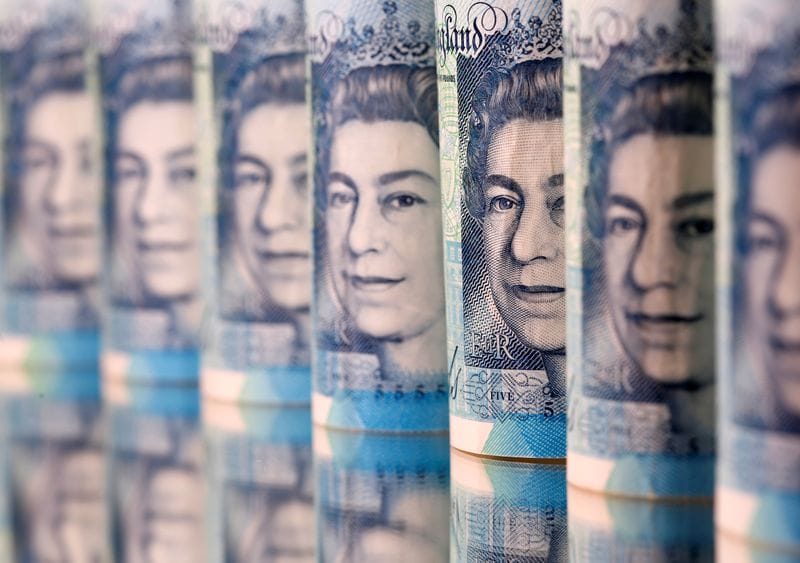Sterling Falls as Johnson Says No Brexit Trade Deal 'Very Very Likely' - ExBulletin

Source: ExBulletin
LONDON (Reuters) - Sterling fell on Friday and implied volatility rose as markets increasingly priced in the risk that Britain could break away from the European Union at the end of the month without a trade deal .
Prime Minister Boris Johnson said on Friday that Britain would likely complete its exit from the EU without a trade deal. The current arrangements will end on December 31, at the end of Britain's Brexit transition period.
The British currency fell more than 1% against the dollar to a low of $1.3135, its lowest since November 13, before recovering to $1.3230 after the German foreign minister said negotiations could continue beyond Sunday's deadline.
Friday's fall puts the pound on track to fall 1.5% this week, the worst performance since September.
It briefly hit a three-month low against the euro before recovering some of its losses and last trading at 91.65 pence, down 0.3% on the day.
Nervousness was also evident in derivatives markets, where implied volatility, an options market indicator for expected price movements, rose. One-week and overnight volatility soared above 20% to a more than eight-month high.
Shares of UK banks also fell as fears of a no deal spread, with Barclays, Lloyds and Natwest losing more than 4%.
The FTSE 250 would slide between 6% and 10% and UK bank shares would fall 10% to 20% in the event of a no-deal Brexit, Morgan Stanley strategists said.
Thu Lan Nguyen, currency analyst at Commerzbank, said the market could "price in a no-deal in the coming days", avoiding a serious crash in the pound as the trade talks deadline expires .
"But it is also possible that the market could cling to the hope of a last-second deal and then be surprised by a failure, which would lead to major market turmoil," she added.
While banks and bookmakers have slashed the chances of a deal, many investors believe London and Brussels will reach a last-minute deal and the fall in the pound has not been as big as it was last week. he approach of the previous Brexit deadlines.
Some analysts say the market appears complacent.
Elsa Lignos, global head of foreign exchange strategy at RBC Capital Markets, said that although the chances of reaching a trade deal in 2020 had almost halved since the start of December, the pound sterling basket against the dollar and the euro was only down about 1%.
According to her, Brexit fatigue, the expectation that the political drama is part of a "set-up for a 'Christmas miracle'" and the view of some that a no-deal Brexit would not be terrible explained why the pound sterling had not yet fallen.
"The GBP volatility curve reflects uncertainty, having comfortably inverted, but spot GBP appears to be complacent. Maybe we are wrong and makeshift deals will get us through," she declared.
(Additional reporting by Sujata Rao; editing by Timothy Heritage, Kirsten Donovan and Jonathan Oatis)
